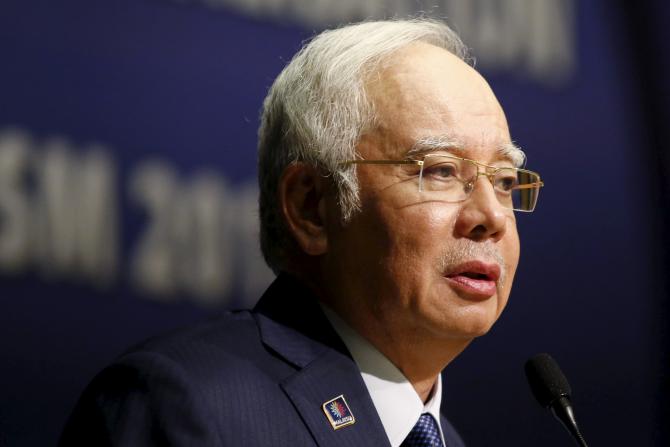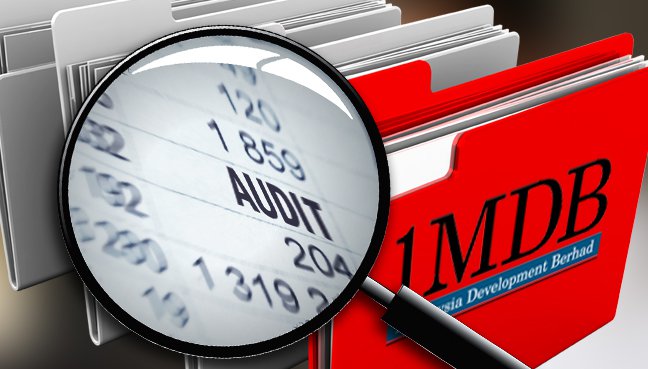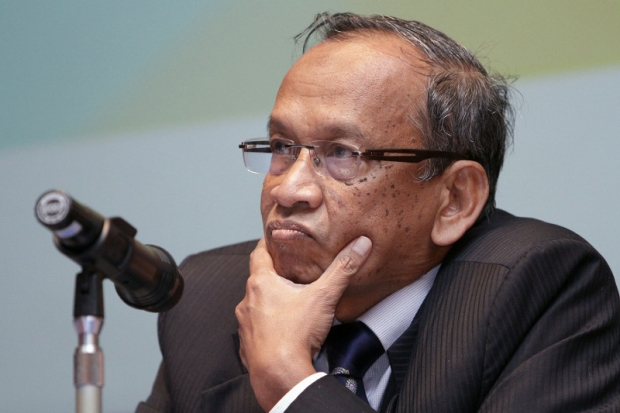6 Reasons Why Critics Are Still Suspicious Of 1MDB Despite PAC's Critical Report
The investigations have posed more questions than answers.
PAC tabled a 106-page parliamentary report on 1MDB in the Dewan Rakyat yesterday, 7 April. It highlighted how 1MDB's board of directors have failed to ensure that the fund's management complied with good accounting practices.
The bipartisan Public Accounts Committee (PAC), which tabled the much delayed report in parliament on Thursday (Apr 7), said it found the financing and performance of 1MDB "unsatisfactory".
The Public Accounts Committee (PAC) called for the advisory board of the fund - chaired by Prime Minister Najib Razak - to be abolished and any reference to the prime minister be changed to finance minister in the company's memorandum and articles of association.
Najib, who founded the state investment fund 1MDB in 2009, has battled for months to fend off allegations that billions of dollars were looted from 1MDB in complex overseas financial transactions. He and 1MDB have consistently denied wrongdoing.
Just hours after the report was released, the executive board of 1MDB offered their resignations.
However, the critics are still demanding for more clarity and answers on the issue, due to these reasons:
1. American English daily, Wall Street Journal (WSJ) claims that PAC's report "made no mention of Prime Minister Najib Razak" despite him being at the centre of this political scandal
The report appeared to take pressure off Najib, who founded 1MDB in 2009, heads its separate board of advisers and has been the target of criticism over the scandal.
Critics suggested the committee’s findings against 1MDB management, the absence of Mr. Najib’s name, and the directors’ offer to resign were orchestrated moves designed to protect the prime minister.
“The report still does not tell us where the money went so the allegations that it ended up in Najib’s account are still unresolved. On the surface, it looks like the previous management has been pushed under the bus," said James Chin, head of the Asia Institute at the University of Tasmania and a specialist in Malaysian politics.
 wsj.com
wsj.com
2. "It's all planned that way, so we could attribute blame on (1MDB board) but exonerate the prime minister. It means nothing," former law and cabinet minister Zaid Ibrahim said.
Zaid Ibrahim wrote on his blog that Malaysians are far from getting any closure from this report.
"How can anyone expect the truth to be known if the man who is the sole shareholder, sole signatory, Finance Minister and Prime Minister all at the same time doesn’t say anything about what happened in 1MDB?," he wrote on his blog.
Meanwhile, according to Malay Mail Online, Perkasa’s Azrul Akmal Saharudin also questioned why the PAC had recommended that the advisory board of the 1MDB, chaired by Najib, to be abolished yet failed to explain the role of the board in the controversy.
3. 1MDB’s debt have been increasing since 2009, despite Najib's promise that he will resolve 1MDB's debts and all the scandals surrounding it
Last June, Najib made a promise to about 1,500 UMNO division information chiefs and NGO representatives during a closed-door briefing that he will resolve 1MDB's problems before the year ends.
Earlier this year, he also said that the state investment firm has settled the "overwhelming majority" of its debts with asset sales.
However, once again, critics are skeptical as the PAC's report revealed that 1MDB had racked up RM50 billion in debt as of January 2016, an increase from the value of debt at RM42 billion in March 2014.
4. 1MDB's auditors were sacked after requesting for additional documents to evaluate some of its investments
1Malaysia Development Berhad (1MDB) sacked two audit firms in four years after the auditors asked for documents the state investment firm failed to provide, the Public Accounts Committee’s (PAC) report said.
The first two auditors — Ernst & Young and KPMG — no longer acted for 1MDB after clashes in opinions with the state investment firm’s board, particularly when 1MDB failed to provide documents to back some of its investments, according to the PAC’s report on 1MDB.
5. The PAC confirmed that 1MDB made over USD3.5 billion of payments to 'Aabar Investment PJS Ltd', a dubious company with very little background information
The PAC's probe found that 1MDB had made a payment of about RM4.24 billion (about USD1.367 billion), without the approval of 1MDB's board of directors, to a company called 'Aabar Investments PJS Ltd '(Aabar Ltd) as security deposits in 2012.
However, PAC said that 1MDB had not proven that the company, which has a name closely resembling Aabar Investments PJS, is a subsidiary of Abu Dhabi's International Petroleum Investment Co. (IPIC).
"As of now, 1MDB has yet to furnish confirmation that Aabar Ltd is a subsidiary of IPIC or Aabar Investment PJS," PAC said in its report.
"The PAC finds that Aabar Ltd is not listed in IPIC's group (of companies) based on its 2013 and 2014 financial statements."
6. The Auditor-General’s (A-G) findings were not included in the PAC report at the last minute because it is filed under the Official Secrets Act (OSA)
Auditor-General (A-G) Tan Sri Ambrin Buang confirmed that the federal audit report on 1MDB was still classified despite the release of the PAC's investigation on the firm.
The matter had been in confusion as the PAC previously intimated that the document would be declassified once the committee submitted its own report to Parliament, which it did yesterday, 7 April.
Opposition MPs argued that the findings were a crucial part of the 1MDB controversy and should be included in debates on PAC’s report.
The A-G failed did not respond when asked if the report would be declassified, or why it was not released along with the PAC report on 1MDB.





